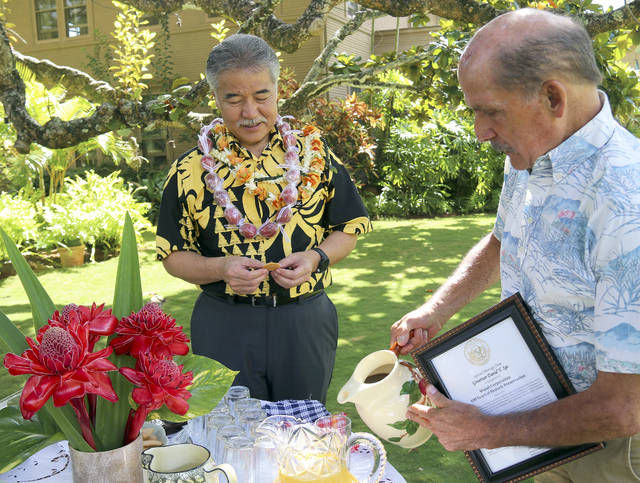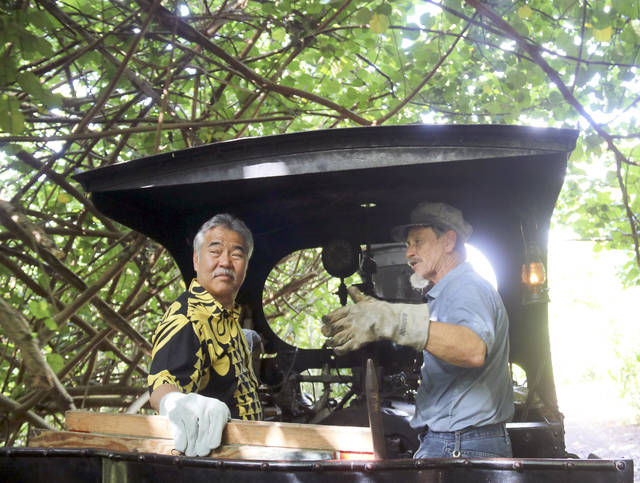Governor talks TAT, road projects


LIHUE — Gov. David Ige gives himself a seven out of 10 for his work since taking office in 2014.
“We made significant progress in a lot of different areas,” he said. “We’re in a good place at public education. I think we’ve made a tremendous stride in sustainability. Housing and homelessness, I believe we’ve turned a corner.”
Ige stopped by TGI’s office Thursday after his luncheon with the Kauai Chamber of Commerce to chat about the possibility of a special legislative session, Transient Accommodations Tax, infrastructure improvements, doubling food production and how he stays in shape.
When it comes to infrastructure, Ige outlined improvements to harbors and airports.
“Improvements to public infrastructure is so important to reducing the cost of living,” he said.
Ige, 60, challenged the state Department of Transportation to do several things.
“The first is to engage the community so we know if the state’s priorities are aligned with the community’s to identify what those priorities are,” he said. “The second is living within our means — meaning we are going to focus on what we can do short-term to make the biggest improvement in traffic flow. The third, looking at lower-cost, high-impact projects like using shoulder lanes.”
When the legislative session ended in May, the fate of the Honolulu rail transit project was uncertain because legislators could’t agree on funding.
There was talk about scheduling a special session of the Legislature to rectify that situation, but Ige previously rejected that proposal.
“I really think it’s about whether the Legislature can get agreement on whether or not to move forward with the rail,” he said. “I’ve heard a lot of concerns from legislators about how the system is being managed and the escalating costs.”
Ige said the main issue is how much the state should be fronting for the $10 billion project.
“I think there’s general agreement, but there’s disagreement about what that means,” he said.
This year, the counties’ share of TAT was reduced from $103 million to $93 million. That means Kauai’s share will go to $11.6 million from $14.9 million.
Under existing law, TAT funds were scheduled to shrink to $93 million after fiscal year 2017. That $10 million will go back to the state.
While Ige said he thinks the decrease still leaves counties with a fair share, he would have supported maintaining it at $103 million.
“But I also tell people Hawaii is the only state in the country where not a penny of property taxes goes toward funding public schools. Not a penny of property taxes go toward fund jails. Not a penny goes to fund community hospitals,” he said. “All of those functions are normally county functions, but the state pays full cost for those functions.”
He said it’s a balancing act.
“I don’t have enough to fund public schools in the way that I want to,” he said. “We have huge needs to fund that we don’t have sufficient funds for. And I really don’t believe we should be going back to the public and getting increased tax revenues.”
When asked about moving Friday night football to Saturday afternoons to protect the shearwaters, Ige said there needs to be ways to protect the birds that doesn’t impact traditions like Friday night lights.
“Something that will protect species that doesn’t impact broader community,” he said.
When he’s mulling over particularly challenging issues, Ige said a good run clears his head and keeps him in shape. He runs about three times a week, always mornings, about three to five miles each outing.
“You’re by yourself and it gives you an opportunity to think about things,” he said. “I don’t like being inside, treadmills drive me crazy. I try to get out and run in the community.”
